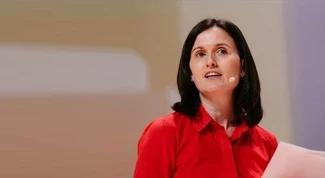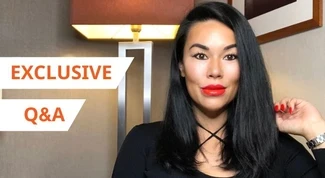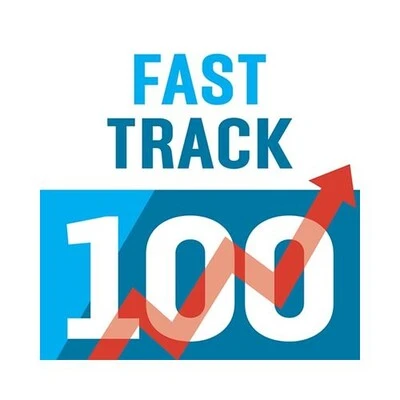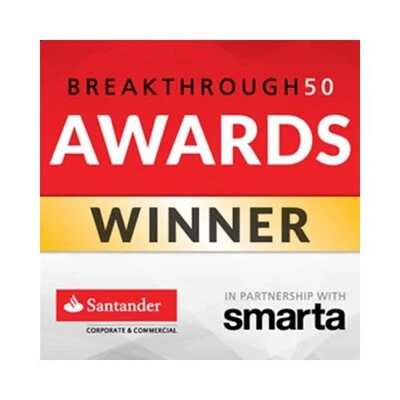As the Former Chief Envisioning Officer for Microsoft, Dave Coplin provides strategy and guidance to help organisations harness the benefits of modern technology. An established speaker, best-selling author, and founder of The Envisioners, Dave is driving the digital conversation to eradicate technophobia and teach audiences how to work smarter, not harder.
In this interview, Dave discusses emerging technologies, the digital revolution, how to create a culture of innovation, and suggests some small changes businesses can make today to outsmart the digital deluge.
Q: Do you think the pandemic has sparked a digital revolution?
“I don't think it sparked a digital revolution, I think it was always there, but the issue was there were lots of people who were nervous when it came to technology. We've been able to work from home for years - it's not news that we can do this.
“For a lot of people, it was like, ‘why would I want to do that? That’s just mad! I want to go to the office, it’s what I’ve always done!’. And I'm not saying that you shouldn't go to the office, but what I'm saying is that people have now been forced to have an experience that they wouldn't normally have chosen, and they’ve figured out that actually, it’s not that bad!
“Video calls are another great example. We've had video calls for years, but up until the pandemic, nobody in the office or the world of work really thought about them. We would have these big video conferencing suites that we'd spent thousands of pounds on and never use! And meanwhile in our pockets and on our desk is a device that’s perfectly capable of doing the same thing.
“But the pandemic showed us that actually, it works well. While it's no replacement for being there in person, it's the next best thing. And so, I think the pandemic, in its bizarre way and horrible context, has forced people to really rethink their relationship with technology and as a result, that will be the legacy.
“Once people have had a good experience, you then carry that expectation with you wherever you go. If we have a great video meeting, we then realise that actually we could have a successful board meeting without having to get everybody from the four corners of the Earth to be in the same physical space and it works out alright.
“I do think the pandemic has been a catalyst and has accelerated what was already underway but has also actually really pushed it further.
“There's lots of glib statements saying ‘we've done more digital transformation in the last 10 months than we've done in the last ten years’, which is probably true, but again, the technology hasn't changed. We haven't got any more Internet than we had before, we have the same devices we had before. What's changed is us humans that use it. That's the mindset of change and that's the ‘digital revolution’ happening right now.”
Q: What is the next ‘big thing’ in terms of emerging technologies?
“I think the next big thing is the same old thing. Artificial Intelligence is really the only show in town right now and other shows are coming, but not for a few years.
“AI is so important because it offers to automate a lot of the things that we do today and take for granted. When I say automated, we're not talking about robots on the factory floor, we're talking about software robots doing many of the things that we might do in a day. AI basically works on patterns. So, if you're in a profession that works on patterns like accountancy, there's an element that we can replicate with AI.
“What AI really offers us is free time, and it's what we choose to do with our time that becomes really important. We've seen this happen through the pandemic, we've developed a new relationship with technology and we're now getting technology to do a lot more than before. Our future success is going to be measured by what we choose to do with the time that the technology has saved us, and that's where the fun is really going to start.”
Q: What are some small changes businesses can make today to harness the benefits technology offers?
“There are some really easy things you can do. The first thing is really simple - just ask people. Talk to your employees. What are the things that you could do to make their lives easier? What are their ideas, what are their experiences?
“When I started my career, there was a handful of people who knew how the technology worked. They were the people, like me, who you'd employ to do your I.T. Well, it’s different now! Every member of your organisation, every employee is engaged with technology. They have their own experience. They've got their own ideas of what works and what doesn't work. So, the first thing I would do is ask them.
“The same goes for your customers as well. You’ve just got to talk to them and ask them, ‘what can we do to help? Where are the pain points? What can we do to smooth out the experience?’ - the key is to be open-minded.
“The second thing is, as a business leader, you need to learn to open your eyes. I get that sounds massively patronising, but as a business leader, you tend to have your head down in today's business, you're worried about today's priorities and you're just focused on your industry, in your company.
“In a digitally connected world, it’s easier to find out what's happening around the world and it’s really important to find out what's happening in other sectors and markets. So, sometimes you've got to learn to take a bit of time to look around and see what's going on and what other organisations are doing. Again, not just in your sector, but outside of your sector. What are the customers doing? How are they relating?
“So, talk to people, listen, get their input and canvass their input. Also, be open-minded and look at different ways of doing things.”
Q: What advice would you give to companies wanting to build a culture of innovation and create a more innovative team?
“It comes back to this shared experience that we now have with technology. Everybody in an organisation is on a spectrum in terms of their digital relationship. So, they're either super engaged in it or partially engaged. I would argue there aren't any people who are completely disengaged from digital.
“So, if I wanted to encourage a culture of innovation, firstly I would make sure that people are really aware that it is how we want to do business - it's no good encouraging a culture of innovation if you don't permit people to innovate. It's a bit like in the old days when there was a suggestion box in the canteen. You’d go and put your suggestion in, and no one would read it, so you’d think ‘I’m not doing that again what a waste of time’.
“But leadership need to empower individuals and say, ‘no, seriously, we want innovation. I don't care where you are in the organisation, if you've got ideas, we'd love to hear them and we'd love to talk to you about them’. So, you create that open culture of innovation.
“Secondly, rather than getting a bunch of nerds in a corner and giving them lots of whizzy gadgets, get a cross-section of the people you care about. It might be your employees, or it could be your customers. Deliberately choose people from different parts of that digital engagement spectrum.
“So, get one of the nerds, but also get someone at the opposite end of the spectrum who's kind of okay with technology but doesn't like to be pushed too far because they’re not completely comfortable. This is a great, diverse approach to finding the right answer.”
Q: What is the secret to capturing and maintaining audience attention in the digital era?
“For me, it's several things. Number one, it's about being genuine and authentic. Nobody wants to hear from you if they're reading something that isn't genuine, or that they can read somewhere else.
“Don't tell me stuff that I can go and read on your website - I'm not interested in it. I want to know what you think and your personal view. It's your colour and character that makes it exciting and engaging. Think about the content that resonates most with all of us.
“I regard myself as a sort of quintessential technology evangelist. So, my job is to not excite you with the technology but to excite you with what the technology can enable you to achieve. I do that in a genuine, personal way, so quite often I'll talk about my own experiences and what happened to me.
“I’ll mainly talk about the times it went terribly wrong and what I learnt from those times, which are very human and the bits that make any audience sit up and go, ‘oh, that was really interesting’.
“Whenever we're talking about audience engagement, I think, ‘what am I giving you? What am I making here and how is that going to connect on a human level to the people I'm interested in and the audience?’.
Why is it important businesses keep up with the trends and make use of the latest technologies?
“Consumers are not stupid. When they have a great experience from a brand somewhere, they carry that expectation with them.
“You might be sitting there thinking, ‘we don't need to do anything. We've been following our traditional business model and nothing's going to change’. Well actually, your customers have changed, and your employees have changed too, regarding how they use technology.
“It’s really important you learn to keep pace with that expectation. This isn't about chasing unicorns, rainbows, new gadgets and new fads, but it's about considering the mindset of your customers, and employees. What are the services that they use and rely on every day, what makes them great and how can I apply that to my business?
“You may think that you're a traditional business, that technology doesn't have anything to do with you or that what you've got is good enough. But the problem is your customers don't stand still and your employees don't stand still either. So, your challenge is, how do you live up to the expectations of both your employees and your customers?”
Q: Which industries do you predict will dominate 2021?
“Those that can react and adapt, I think is the easy answer to that. Those that facilitate our new way of living or our altered way of living. So, for example, if you are working in any space that enables us to have a touch-free existence.
“Also, all those organisations that are really able to adapt, learn and listen to where their customers are because their customers coming out of the pandemic will be very different to their customers going into the pandemic.
“I think the industries that will thrive are the ones that really take the time to listen and understand where their customers are now and modify their business accordingly - that's going to be absolutely crucial.
“Also, the organisations that listen to employees as well because you've got a load of great insight there. They are people who already understand your business and are also consumers as well.
“So, organisations that can adapt, pivot, learn and continue to do that. We've got a new normal that will consistently change. The more agile you can be, the more comfortable you are with ambiguity, the better you become as an organisation.”
Q: What qualities do you possess that you believe led to your entrepreneurial success?
“I'm very lucky is number one. Number two, I have a superpower, which is a love for computers. When I was growing up, a lot of my mates would spend their time outside, running around, just doing the things you're supposed to do when you're young. But I was inside in front of a screen.
“I'm not really clever, I just like exploring technology. It's about being curious, continually learning and being open-minded, always asking yourself ‘what can I do better?’
“In my case, I just got lucky. I was at the right time in the evolution of humanity, at the dawn of the personal computing revolution, and I just managed to catch that wave.”
Q: If you could give yourself one piece of advice at the start of your career, what would it be?
“Take your time! I think that's the thing for me because, at the start of your career, you just want to go and get out there, and I get that. But actually, there's so much you can do and learn.
“Listening is a very underrated skill, especially when you're starting. It's the one thing I talk to people about, especially young adults who are starting. I think one of the superpowers you've got to develop is the ability to truly listen. So, when you're in an organisation and people are telling you things don't just listen to the words, get behind the words, and ask yourself, 'why are they saying that? What does that mean? What does that do?’ - I think that's really important.
“I think if you can combine listening with just being mindful of the fact that not everything's going to happen overnight, plan it out, be patient, you’ll enjoy it a lot more along the way.
“It really is about trying to make the best of the situation that you have right in front of you and making every day a little bit better than the one before, learning wherever you can, being resilient, and also, learning to take some time out as well. Actually, learning to say, ‘I've done enough work for today, I'm going to go do something else’.
“So, really listen, be patient, take your time and also work on diversifying your approach to life. Don't just be all work and don't just be all play, work on a mixture of those things.”
Book Dave Coplin
Contact the Champions Speakers agency to provisionally enquire about Dave Coplin for your event today. Simply call a booking agent on 0207 1010 553 or email us at [email protected] for more information.









